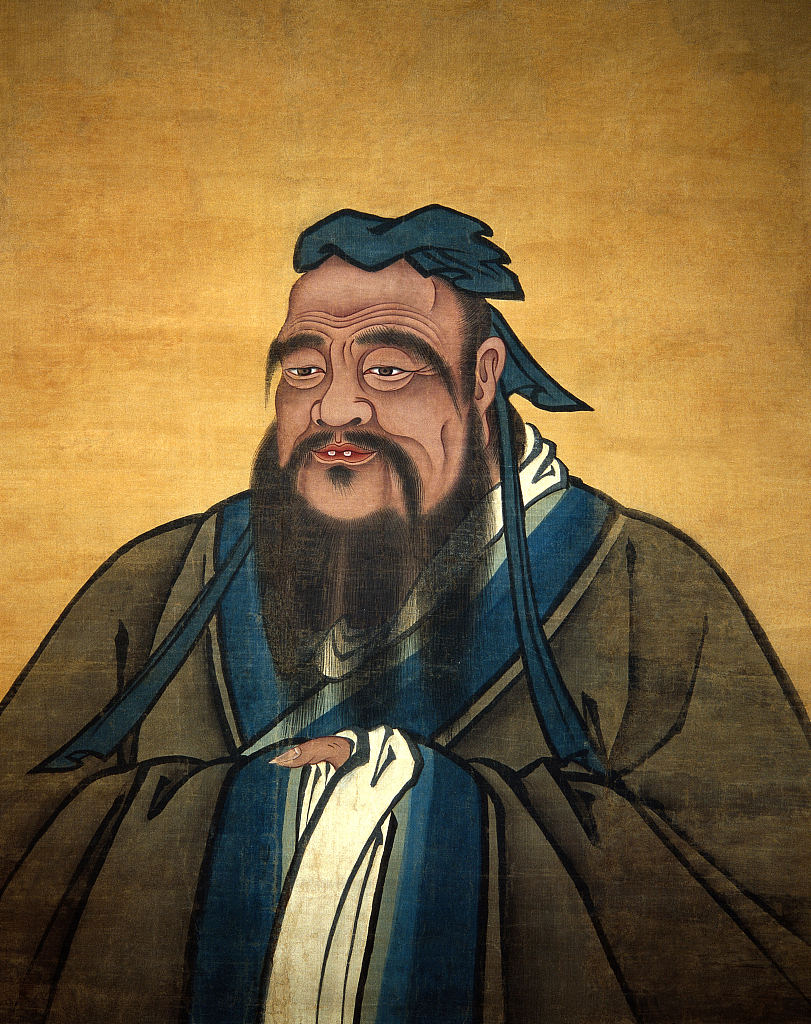Regarding ethical theory, Cupid leans towards the German philosopher Immanuel Kant, the Chinese philosopher Confucius and the Buddhist concept of karma.
Immanuel Kant believes that the principles of ethics need to consider both the mean and the end. The mean is the event that has occurred, and the end is the result.
For example, if you are driving on a freeway with a 100 km/h speed limit. You are moving within the speed limit, and this person high on drugs, suddenly jumps in front of your car before you or any reasonable person can stop, causing your car to hit him, leading him to die on the spot, under the circumstances, you did nothing wrong.
However, if you are driving at a speed of 100 km/h, in a speed limit zone of 40 km/h, and that person dies, as a result, what you are doing is wrong.
In both cases, you hit a person with a car and caused the person's death, but due to different circumstances, in one case, you were at fault. On the other, you did nothing wrong.
Confucius believes ethics is based on whether you cause disturbance to peace and harmony (e.g., commit murder or terrorist attack.) When necessary, perform your duty to help maintain the required level of peace and harmony (e.g., paying your taxes). Subject to that, a person got the right to freedom and got the duty to tolerate others' such rights. Even if the person is immoral because as long as he/she causes no disturbance to peace and harmony and his/her duty to maintain the necessary level of peace and harmony is fulfilled, everybody has the right to freedom. Thus, you got no such right to enforce morality upon another, against their will, under these circumstances, by doing so, you cause disturbance to peace and harmony. This is similar to the modern Western view of a person has the right to freedom, if not harming others.
Confucius talked about the importance of justice but never discussed the principles of justice.
Regarding justice’s principle, Cupid favors the Buddhist view of karma. In Cupid's opinion, karma is just a fancy word for “what goes around comes around,” and based on that, Cupid would argue that the principle of justice is “don’t take advantage of others.”
Based on that, Cupid would argue that the principle of ethics is based on peace, harmony, and justice.
Peace = not harming society or others, except defense of self, society, or others with justifiable cause.
Harmony = not causing disturbance to good orders.
Justice = not taking advantage of others, except defense of self, society, or others with justifiable cause.
The principle of harmony is built upon the principle of justice and cannot contradict justice’s principle. Hence, the code of good order cannot be an act of taking advantage of others.
The principle of peace is built upon harmony and justice and cannot contradict harmony and justice.
Also, to determine whether an action interferes with peace, harmony, or justice, you need to consider both the mean and the end.

The principle regarding
1. What is good ethical
2. Whether it is defending, self, society, or others with a justifiable cause or not and
3. Your duty to help maintain the necessary level of peace, harmony, and justice
To such extent, Cupid favors a passage within Confucius’s belief that the government must maintain the necessary level of peace and harmony, but cannot themselves contradict peace and harmony’s principle.
Thus, Cupid would argue that.
An act that is defending self, society, or others with a justifiable cause or action of good ethics is an act that (1) Enforces justice without violating the principle of justice (2) Enforces harmony without violating the principle of harmony and justice, and (3) Enforces peace without violating the principle of peace, harmony, and justice (if an action neither enforces nor cause disturbance to peace, harmony, or justice, it is neither good ethical nor unethical, but of neutral nature.)
Your duty to help maintain the necessary level of peace, harmony, and justice: Performing your essential task to defend self, society, or others with justifiable cause (e.g., paying your taxes)
Suppose it is violating such a principle of ethics to defend peace, harmony, or justice. Then, it is the question of which is the lesser of the two evil.
In regards to violence, Cupid say: Violence can only be ethical if it is serving the of enforcing the principle of ethnic, without violating the code of ethic, e.g., when the ally went to war with Nazi, when the police raided the home of a drug lord or when you drive off an attempted rapist trying to rape your girlfriend with a baseball bat. Subject to that, there are times where it is a duty to be violent, e.g., during WW2, it was the civic duty of every able body man to serve in the military to fight the Japs and the Nazis. But violence is unacceptable under any other circumstances.
In the west, there is this Left vs. Right thing going on. In Cupid's opinion, it is ridiculous. Cupid cannot be bothered to care less whether a person identifies or whether philosophy is of the left, right, or neither. All that matters is whether that person or philosophy violates the principle of ethics or enforces the code of ethics. Thus, for example, KKK, Neo-Nazi, Communism, and some political correctness insanity cases violate ethics regulation, therefore unacceptable.
Thus, in some matter Cupid favor the left, others Cupid favor the right, sometimes Cupid favor neither and sometimes Cupid approve of both. Cupid also favor some concepts independent from both the left and the right and disapprove of others.


No comments:
Post a Comment